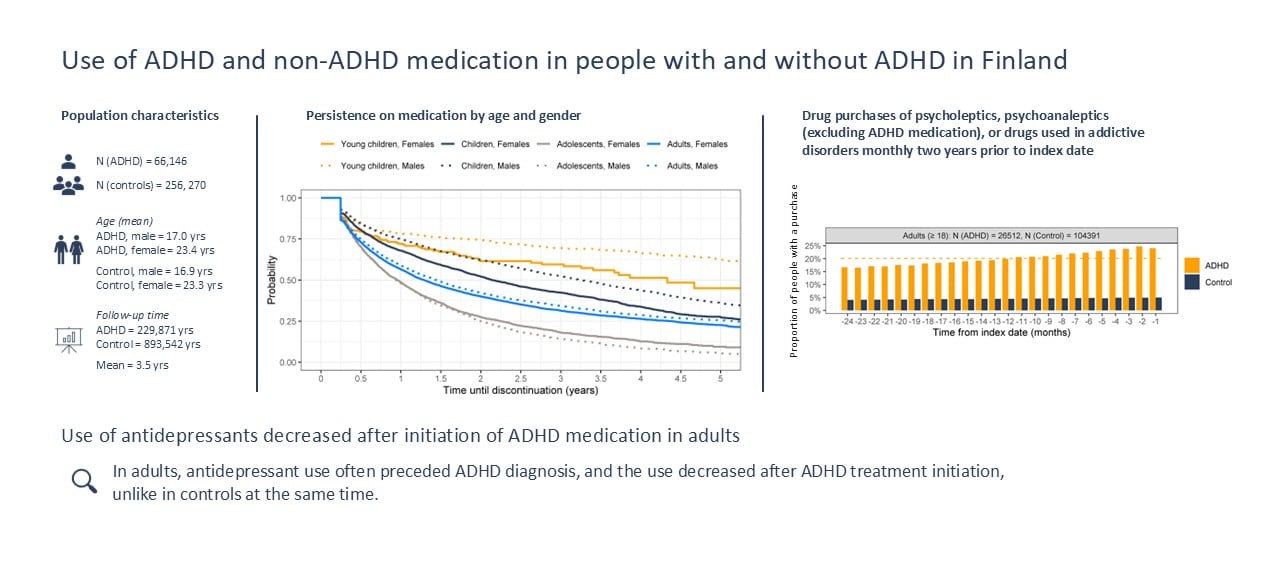New study: decrease in antidepressant use among adults after ADHD treatment begins
A nationwide registry-based study conducted in Finland has found that initiating ADHD medication significantly reduces the use of antidepressants among adults. The study examined the use of ADHD medications and other pharmaceuticals among patients diagnosed with ADHD, compared to a matched control population.
8.9.2025
The study, carried out by Takeda and Oriola in collaboration with Finnish medical specialists, analysed data from patients diagnosed with ADHD between 2015 and 2020 both before and after their diagnosis. The study findings indicate that psychiatric medications, particularly antidepressants, are commonly used prior to an ADHD diagnosis. However, following the initiation of ADHD treatment, antidepressant use declined markedly. This supports the notion that ADHD may often go undiagnosed, with its manifest symptoms being treated using other medications. In the study, antidepressants were analysed as a group.
Researchers utilised comprehensive national healthcare registers that included data on primary care and specialised care diagnoses, prescriptions issued, prescription medication purchases, and medicine reimbursement entitlements. The study cohort included 66,146 individuals with ADHD and 256,270 matched controls. None of the ADHD patients had prior diagnoses or medication use between 2010 and 2014. The study encompassed individuals of all ages, revealing that ADHD was diagnosed earlier in males (median age 11) than in females (median age 21).

ADHD medication adherence was high across all age groups, with most patients purchasing their prescribed medication shortly after receiving a prescription. Treatment was most commonly initiated with extended-release methylphenidate. The youngest children remained on medication the longest, while adolescents had the highest discontinuation rate: more than half of them stopped treatment within a year. Among adults, approximately one in four continued their medication uninterrupted for at least five years. Seasonal patterns were observed in school-aged children; medication purchases decreased during summer months.
Interestingly, following the initiation of ADHD treatment, the use of antibiotics and other anti-inflammatory medications among children decreased more steeply with age compared to the control population. Among adults with ADHD, the use of antiepileptics and melatonin was up to four times more common and the use of proton pump inhibitors was twice as common as in the control population both before and after ADHD diagnosis.
The study has been published in the journal Acta Psychiatrica Scandinavica.
For further information, please contact:

Tuire Prami
Senior RWE Scientist Oriola +358 50 546 8459 tuire.prami@oriola.com